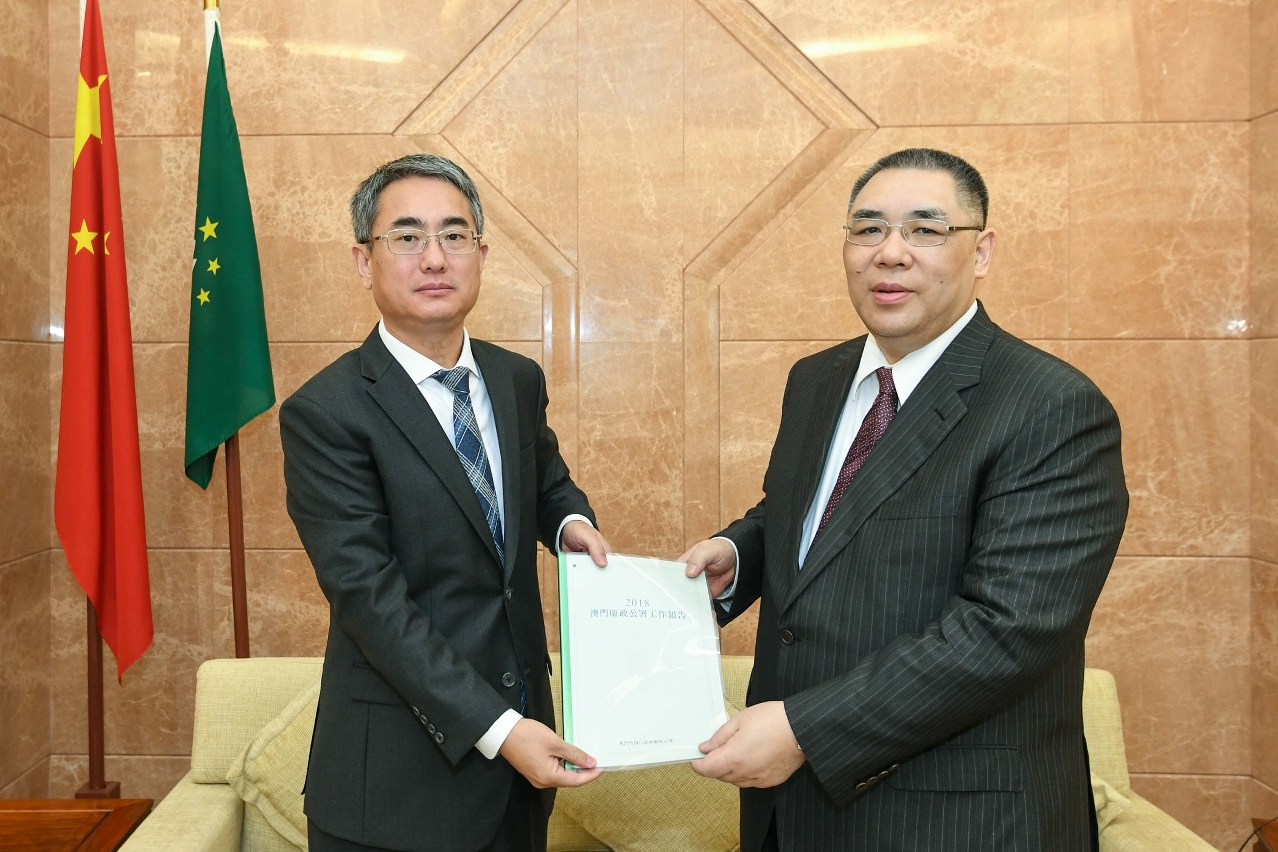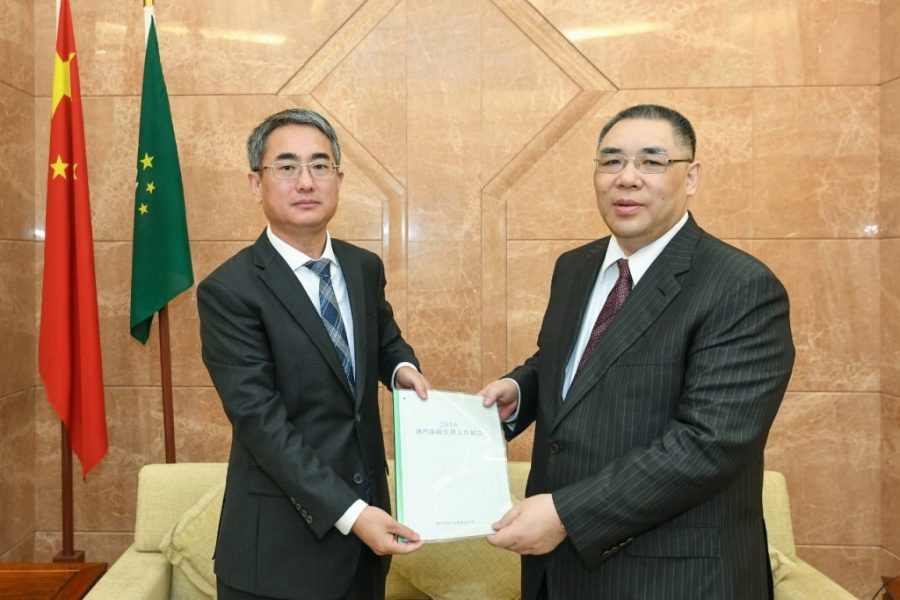The Commission Against Corruption’s (CCAC) 2018 Annual Report published Wednesday revealed a string of criminal cases allegedly committed by civil servants, including two cases involving senior officials who allegedly abused their power for personal gain.
According to the report, the anti-graft body concluded the two cases in December last year – one allegedly committed by a senior official of the Environmental Protection Bureau (DSPA) and the other by a senior official of the Representative Office of the Macau Special Administrative Region (MSAR) in Beijing.
In the first case, the CCAC received a complaint last year that a former official of the Environmental Protection Bureau had a “close” relationship with a female colleague and that he had often arranged for the woman to travel with him on his working visits to places outside Macau. Graft busters discovered that the official had been having an affair with his female colleague for a long time, according to the report.
CCAC officials, according to the report, discovered that the official had deliberately arranged for the female colleague to accompany him on his working visits on multiple occasions. During a working visit to Portugal in 2013, not only was the trip unrelated to the woman’s scope of work, the official also deliberately extended the duration of the trip even though officially there was no need for it. All the related expenses on food and accommodation in Portugal and travel allowances were paid by the Macau government, the report says.
In the second case, the anti-graft body received a complaint last year that a senior official of the MSAR office in Beijing had violated living allowance regulations, according to the report, which points out that civil servants working in representative offices outside Macau are entitled to receive the full amount of their expatriate allowance if they choose to rent a flat on their own at that place, while civil servants are only entitled to receive half of their expatriate allowance if they choose to live in accommodation assigned by the government.
CCAC investigators discovered that the official had continuously received the full amount of the expatriate allowance for many years even though he or she (the report does not reveal the official’s gender) had been living on the premises of the representative office for a long time, according to the report, which pointed out that the official used two rooms in the representative office as living quarters.
In addition, the official had installed a number of amenities such as a shower, water heater, washing machine and a dryer in the representative office for personal use, the report says.
Graft busters also discovered that the official had ordered the representative office’s drivers to take his or her relatives and friends to sightseeing spots in Beijing. The official had also told the drivers to pay for the meals of his or her relatives and friends first and subsequently approved the expenses claims as if they were related to his work, according to the report.
The 2018 annual report says that the CCAC concluded that the two senior officials abused their power for personal gain. Consequently, the CCAC transferred the two cases to the Public Prosecution Office (MP) for possible arraignments on abuse of power charges.
Meanwhile, the CCAC 2018 Annual Report also revealed a host of maladministration cases. In one of the cases, the CCAC discovered that as of April 2017 some 16 percent of the staff members of the Macau Productivity and Technology Transfer Centre (CPTTM) – a semi-government entity – were related to each other. The report says that the high percentage of staff members being related to each other might cause residents to wonder whether the centre favoured relatives or friends when recruiting staff.
The anti-graft body launched an investigation into suspected nepotism after receiving a number of complaints. The findings showed that out of the 101 staff members as of April 2017, 16 members were closely related, such as father-son, father-daughter, husband-wife, brother-brother and sister-sister relationships, according to the report.
During the investigation, the CPTTM failed to provide CCAC inspectors with the employment records of some of its staff members. The CCAC discovered that the centre had recruited its staff members based on arbitrary decisions by senior staff members, according to the report.
The CCAC also discovered that the managers of the centre’s various departments could make their own decisions as to which job applicants were allowed to take an exam, and they could also decide to recruit staff members by only interviewing them without the need to take an exam, according to the report.
The report says that even though CPTTM has meanwhile improved its staff recruitment mechanism, the CCAC believes that a string of problems are still affecting its recruitment mechanism, such as that its hiring rules still fail to clarify how to avoid nepotism.
The report concludes that while there were fewer reported cases of alleged corruption last year, there was an increase in the number of alleged cases of fraud, document forgery and abuse of power by civil servants.
The CCAC combines the functions of fighting graft with those of an ombudsman.(Macaunews)






